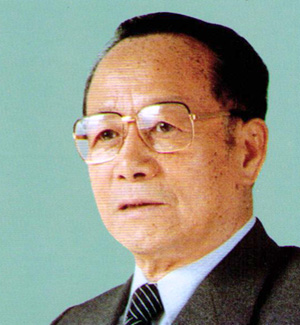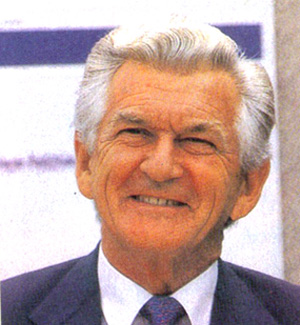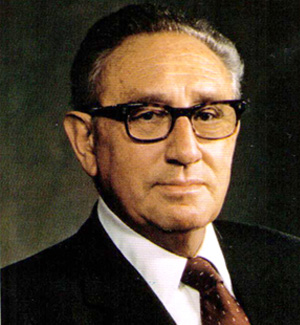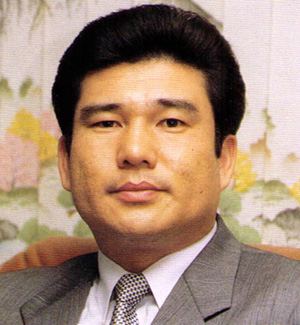| History of the CISM Topic 1. Changes in East Asia: Challenges and opportunities
Session 1) Changing relations and structures - The impacts of the global changes in East Asia in the coming 10 years
- The influences and significances of the changes in East Asia in the global contest
- The changes and adjustments of the major powers relations in East Asia
Session 2) The influential factors (Considering the peace and development of East Asia) - The influences of political and security factors
- The impacts of trade and economic regionalism (in the global and regional context)
- The conflicts and coordinations of different political, cultural and value systems
- The changes and adjustments of U.S. East Asia policy
- The role of Japan
- China¡¯s contribution to the stability and development in this region
Session 3) The Prospects of cooperation - The new foundation of coordination and cooperation of countries involved
- The historical legacies and obstacles
- The pragmatic and feasible models and mechanisms for cooperations
2. The prospects for East Asian cooperation and development in the next 10 years
Session 1) Security Issues - The possible main security issues that East Asia may face in the next 10 years
- The common points and differences between the security policies of East Asian countries in the next 10 years
- The ways and prospects for security cooperations among East Asian countries in the next 10 years
Session 2) Political, Social and Cultural Issues - The Sino-U.S. relations in the next 10 years
- The U.S.-Japanese relations in the next 10 years
- The ways and prospects for exchanging and coordinating views and concepts among East Asian countries in the next 10 years
Session 3) Economic Issues - The prospectives on East Asian economic situation in the next 10 years
- The ways of controlling the clashes resulted from the economic barriers set up by different countries
The ways of economic cooperations and exchanges among the newly industrialized, countries, developing countries and developed countries in the next 10 years Message 
¡ª¡ªGu Mu, Chairman, CISM; Former Vice Premier Respected delegates, ladies and gentlemen: At the opening of the First Beijing International Symposium on ¡°The Prospects for East Asian Cooperation and Development in the Next Ten Years¡±, on behalf of China Society for Strategy and Management Research may I extend our warmest welcome to all the public figures, distinguished scholars, and friends in the business circle from different countries and Hong Kong, and our sincere congratulations to the Symposium!
In a changeable world political and economic situation, the significance of the East Asian region as a relatively stable factor in the process of world peace and development is becoming more and more important. Therefore, a symposium focusing on the perspectives for the East Asian cooperation and development in the next ten years will produce profound and far-reaching impact on world peace and progress.
Friends, ladies and gentlemen:
The purpose of our efforts made together in the three days is to seek the birth of a new and unified world. We have only one theme: Cooperation and Development. I believe we will succeed, because we are not coming as an integrated world.
Among all the present today are many new friends as well as our good old friends. I hope we take advantage of this opportunity to promote mutual understanding and friendship. Let us feel free to fully discuss and exchange dieas, make our greatest contributions to the promotion of East Asian economic development, and to the great and glorious cause for world peace and development!
I wish all the delegates, ladies and gentlemen a pleasant stay and good health in China.
I wish the Symposium a great success!
Thank you! 
¡ª¡ªRobert James Lee Hawke, Former Prime Minister of Australia
The China Society for Strategy and Management Research, The China Center for International Studies and the Asia Pacific Economy Culture Institute are to be congratulated for organizing this international symposium on ¡°The Prospects for East Asian Cooperation and Development in the Next Ten Years.¡±
By any relevant criteria the issues to be covered by this symposium are among the most significant facing the region, and indeed the rest of the world, as we now move towards the twenty first century.
Within this period we can see Japan surpassing the United States as the world¡¯s largest economy and China proceeding towards becoming an economic colossus. It is desperately important that these facts and their implications for the region and the world, should be understood and not reared; for while knowledge does not necessarily produce sound policy, ignorance is the enemy of that objective.
Enlightened policies, within each country and for me enlightenment means understanding that a country¡¯s best interests are served by taking account of the legitimate aspirations of others-are not of themselves sufficient to ensure optimal outcomes. There is a need to provide adequate mechanisms and rules for international economic cooperation. This is well recognized by the organizers of the symposium.
I look forward to participating with distinguished representatives from many countries as well as the host country China, in the knowledge that such meetings will play a part in developing the understanding that can lead to sesible and relevant policies. 
¡ª¡ªHenry A. Kissinger, Former State Secretary of U.S.A. On the occasion of the first international symposium sponsored by China Society for Strategy and Management Research and the Center for International Studies of the State Council, I would like to extend my warm regards to all the conference participants. In addressing the prospects for East Asian cooperation and development, the symposium is providing an opportunity for a timely and important discussion on a subject of great interest to China and the United states.
Although I am unable to be with you, I would like to offer my good wishes for a very successful exchange of views. 
¡ª¡ªYoon Sukhun, President, A.P.E.C.I. Ladies and Gentlemen:
In the past when our international society was at the mercy of the law of jungle that the stronger prey upon the weaker, the powerful growth of each nation was the most important thing. So each nation was the most important thing. So each of us has done our best in order to make his own nation powerful.
But nowadays, cooperation and compromise among nations become the major premise of international society. There are no more the absolute strong and the absolute weak, no more endless competition, only mutual cooperation and various changes rules the international society.
In the coming 21st century, our concern will be changed from political ideology to economic value. But the economic value we assembled here to talk with and understand each other not to delegate or contribute for our own nations. As the Korean proverb goes, if they were together whenever happy or not, they could maximize the happiness and minimize the unhappiness. So I think it¡¯s the best way to get over the pain of old days that we ourselves forgive and compromise with each other in the name of friend. Our international friendly ties have to be promoted to get along, transcending both community and national boundaries.
In the history of the past the rule of international society was the strength like the jungle theory, but nowadays a number of friendly nations should communicate and compromise pursuing international understanding and friendship. Let us give and take the wisdom and friendship we desperately need. ???? I would like to give my best wishes to every members of China Government who made their special efforts for this symposium. PROGRAM July 1(Thursday) Registration July 2(Friday) Plenary
09:00-10:30
Opening session
Chairpersons: China: Li Luye£» USA: Stanley Resor
Speeches: China: Gu Mu£» Australia: R.J.L. Hawke
Thailand: Chutchai Choonhawan£» ROK: Yoon Sukhun
10:30-10:50 Coffee Break
Topic A: Changes in East Asia-challenges and opportunities
10:50-12:00
Session 1. Changing relations and structures
Chairpersons: China: Zhang Wenpu£» USA: Russel Dougherty
Speakers: China: He Fang£» Australia: R.J.L. Hawke
Discussants: USA: William Lewis£» China: Yang Chengxu
12:00-13:30 Lunch
13:30-15:00
Session 2. The influential factors
Chairpersons: China: Pu Shan
Speakers: China: Chen Xiaogong£» ROK: Kim Myung Yoon£» USA: Richard Lawson
Discussants: Hong Kong: Wang Gengwu£» China: Zhang Baijia£» ROK: You Sunghwan
15:00-15:20 Coffee Break
15:20-17:00
Session 3. Prospects for Cooperation
Chairpersons: China: Qin Chuan£» USA: Jack Merritt
Speakers: Thailand: Chatri Soponrpanieh£» China: Chen Xiaolu
Discussants: China: Wang Jisi£» USA: Bill Tuttle£» ROK: Kim Gunsae
19:00 Reception July 3(Saturday) Panel Discussion
Topic B: The prospects for East Asian cooperation and development in the next 10 years
09:00-10:20
Panel 1: (Security Issues)
The Possible main security issues that East Asia will face in the next 10 years
Chairpersons: China: Song Zhongyue£» USA: Jonathan Pollack
Speakers: China: Wang Pufeng£» Australia: Robert M. Willcocks£» USA: Alfred wihelm
Panel 2: (Political, Social & Cultural Issues)
The Sino-US relations in the next 10 years
Chairpersons: China: Gao E
Speakers: China: Wang Jisi£» USA: Daniel C. Matuszemski£» Thailand: Sanguan Lewmanomont
Panel 3: (Economic Issues)
The prospectives on East Asian economic situation in the next 10 years
Chairpersons: China: Yuan Baohua
Speakers: China: Zhou Xiaochuan£» ROK: Doh Jaeyoung
10:20-10:40 Coffee Break
10:40-12:00
Panel 1: (Security Issues)
The common points and differences between the security policies of East Asian countries in the next 10 years
Chairpersons: ROK: Ock Manho£» China: Chen Zhiya
Speakers: China: Tian Xinjian£» ROK: You Sunghwan£» USA: Michael Swaine
Panel 2: (Political, Social & Cultural Issues)
US-Japanese relations in the next 10 years
Chairpersons: China: Zhang Baijia£» Thailand: Vacharaphol
Speakers: USA: Jonathan Pollack
Panel 3: (Economic Issues)
The ways of controlling the clashes resulted from the economic barriers set up by different countries
Chairpersons: Pakistan: Shameem Qurashi£» USA: Charles Rossotti
Speakers: ROK: Choi Wonsuk£» Hong Kong: Lu Qiu
12:00-13:00 Lunch
13:00-15:00
Panel 1: (Security Issues)
The ways and prospects for security cooperations among East Asian countries in the next 10 years
Chairpersons: USA: Alfred Wihelm£» China: Chen Xiaogong
Speakers: China: Guo Zhenyuan£» USA: Karl W. Eikenberry
Panel 2: (Political, Social & Cultural Issues)
The ways and prospects for exchanging and coordinating views and concepts among East Asian Countries in the next 10 years
Chairpersons: China: Wang Jisi£» Australia: R.M. Willcocks
Speakers: Malaysia: Jawhar£» Indonesia: Wanand
Panel 3: (Economic Issues)
The ways of economic cooperations and exchanges among the newly industrialized countries, developing countries, and developed countries in the next 10 years
Chairpersons: China: He Di
Speakers: China: Wu Jinglian
15:00-15:20 Coffee Break
15:20-17:00
Free discussion and sum up
Chairpersons: China: He Fang£» USA: Stanley Resor
19:00 Reception July 4 (Sunday)
09:00-12:00 Reserve
12:00-13:30 Lunch
15:30 Closing session
Chairpersons: China: Luo Qingchang£» USA: Stanley Resor
Speakers: China: Li Luye£» ROK: Yoon Sukhun£»Australia: R.J.L. Hawke£» USA: Richard Lawson
Thailand: Chutchai Choonhawan
19:00 Reception ATTENDENCE LIST I . China Xiao Ke
Honorary Chairman, CISM Gu Mu
Chairman, CISM & Former Vice Premier Zhang Aiping
Senior adviser to CISM Li Luye
Director General, CCIS He Fang
Deputy Director General, CCIS
Vice Chairman, CISM Gao E
Deputy Director General, CCIS
Vice Chairman, CISM Qin Chaoying
Secretary General, CISM Tong Dalin
Former Vice Minister, State Science & Technology Commission Wu Jinglian
Deputy Director General, Research Center For Social Development, the State Council PARTICIPANTS Yao Jinrong
General Manager, CITIC Zhou Xiaochuan
Vice President, Bank of China Kang Dian
Deputy General Manager, China General Packing Corporation Chen Luzhi
Vice Chairman & Secretary General, PECC
Former Ambassador to Denmark Yang Chenxu
Director, China Institute of International Studies
Former Director of Policy Studies, Foreign Ministry
Former Ambassador to Austria Liu Shan
President, College of Foreign Affairs
Former Ambassador to EEC Wang Jisi
Deputy Director, the Institute of U.S. Studies, CASS Zhang Baijia
Research Fellow, the Institute of Modern History, CASS Pu Shan
Director, the Institute of Post-graduates, CASS
Famous Economist Yuan Ming
Director, the Institute of International Relations, Beijing University, Professor Chen Xiaogong
Standing Member of the Council, CISM Guo Zhenyuan
Executive Director, China Center for International Studies
Chi Fulin
Vice President of China (Hainan) Reform & Development Research Institute
CASS, Researcher Chen Zhiya
Board Member/Deputy Director, Foundation for International & Strategic Studies Song zhongyue
Standing Member of the Council, CISM, Professor He Di
Institute for American Studies, CASS, Researcher Wang Pufeng
Director, Department of Strategic Studies, the Academy of Military Science Tian xinjian
Director, the 2nd Division, Department of Strategic Studies, the Academy of Military Science Jiang Hong
Director, Institute for Financial Studies, People¡¯s Bank of China Gao Yuanzheng
Deputy Director, Institute for Restructuring the Economic Systems, State Council Li Qingyuan
Director, Department of International Cooperations State Commission for Restrusturing the Economic Systems, PRC II. The United States of America Nitze, Paul
Founder & Diplomat-in-Residence
The Johns Hopkins SAIS Resor, Stanley
Attorney, Debevoise & Plimpton Wihelm, Alfred (Dr.)
Vice President of the ACUS Lawson, Richard
President of the National Coal Association
Director of the ACUS, General (ret.) USAF Dougherty, Russel
Of Counsel, McGuire, Woods, Battle & Boothe Tuttle, William
President of Logistics Management Institute General (ret.) USA Chang, Peter
Republican Senatorial Inner Circle
Member Christian Doris Inc. Chairman Merritt, Jack
President & COO
Association of the US Army Evans, Stewart
Attorney of McGuire, Woods, Battle & Boothe Finkelstein, Edward S.
Chairman, Finkelstein Associates Lewis, William (Dr.)
McKinsey & Co. Rossotti, Charles
CEO, American Mgmt, System Darby, Mary W.
Executive Director, America-China Society
Pollack, Jonathan D.
Corporate Research Manager (RAND) Swaine Michael (Dr.)
Rand Corporation Matuszemski, Daniel C.
President, International Research & Exchanges Board Eikenberry, Karl W.
National Security Fellow, John F. Kennedy School of Government, Harvard University III. The Republic of Korea Yoon Sukhun
President, A.P.E.C.I. Kim Myungyoon
Permanent Advisor to the Democratic Liberal Party Ock Manho
The former Chief of the Republic of Korea Air Force You Sounghwan
Congressman Choi Wonsuk
Chainman, Dong Ah Group Doh Jaeyoung
President, Kisan Kim Joong woong
President, National Information & Credit Eveluation Inc. Kim Gunsae
Vice Chairman, Haedong Mutual Saving¡¯s & Finance Co. LTD. IV. Japan Matsuda Iwao
Congressman Yoshimura Yuji
Total Project Studies, President Oba Yaeko
Marianne Shoe Co. President V. Thailand Chutchai Choonhawan
President, The Privy Council
The former Prime Minister Kamphol Vacharaphol
Chairman, The Thai Rath Daily Newspaper Chatri Soponrpanieh
Member of Board, President, Bangkok Bank Limited Sanguan Lewmanomont
Adviser to Former Prime Minister
Attorney, President Lewmanomont
International Low Office VI. Australia Hawke, Robert James Lee
Former Prime Minister Willcocks, Robert M.
Lawyer VII. Malaysia Dr. Mohamed Jawhar bin Hassan
Deputy Director General, ISIS VIII. Indonesia Dr. Jusuf Wanand
Chairman, Supervisory Board, Center for Strategic & International Studies IX. Vietnam Ngo Van Hoa
Research Assistant to Director General
Director of Asia-Pacific Research Department
Institute of International Relations X. Pakistan Shameem Qurashi
President of Milcon gulf Goup XI. Russia Titarenko
Director, Institute of Far Eastern Studies XII. Hong Kong Wang Gengwu
President of Hong Kong University Jiang Bo
General Manager, China Merchants
Holdings CO., LTD. Lu Qiu
Deputy General Manager, CITIC ORGANIZERS CHINA SOCIETY FOR STRATEGY AND MANAGEMENT RESEARCH CHINA CENTRE FOR INTERNATIONAL STUDIES THE ATLANTIC COUNCIL OF THE UNITED STATES ASIA-PACIFIC ECONOMY CULTURE INSTITUTE | 
